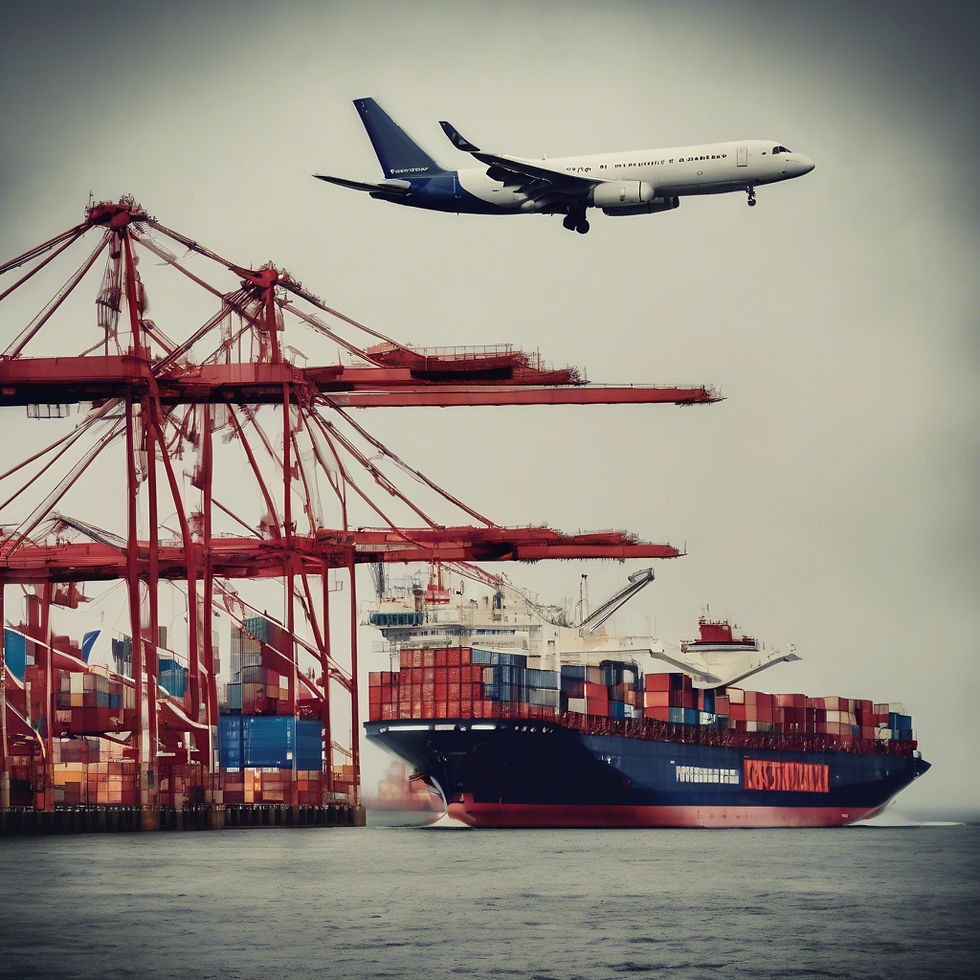Decoding Incoterms: A Freight Forwarder's Guide to International Trade Terms
- YAN TING LEE
- Mar 4, 2025
- 3 min read

Navigating the complexities of international trade can feel like deciphering a secret language. One of the most crucial, yet sometimes confusing, aspects is understanding Incoterms. As a freight forwarding company, we believe in empowering our clients with knowledge. This guide will demystify Incoterms and explain why they are essential for smooth and successful international shipments.
What are Incoterms?
Incoterms, or International Commercial Terms, are a globally recognized set of rules defining the responsibilities of sellers and buyers in international trade contracts. Published by the International Chamber of Commerce (ICC), they clarify who is responsible for costs, risks, and tasks associated with the transportation and delivery of goods. Think of them as standardized shortcuts that prevent misunderstandings and disputes in international transactions.
Key Incoterms Explained:
Let's break down a few commonly used Incoterms:
EXW (Ex Works): [Image: A photo of goods ready for pickup at a factory or warehouse] This term places the minimum obligation on the seller. The buyer is responsible for picking up the goods from the seller's premises and bears all costs and risks from that point onwards. EXW is often used when the buyer wants maximum control over the shipment process from the very beginning.
FOB (Free On Board): [Image: A ship being loaded with cargo at a port] Seller's responsibility extends to loading the goods on board the vessel nominated by the buyer at the named port of shipment. The risk transfers to the buyer once the goods are on board. FOB is typically used for sea or inland waterway transport.
CIF (Cost, Insurance and Freight): [Image: A cargo ship sailing on the ocean with a clear sky] Under CIF, the seller is responsible for arranging and paying for the carriage and insurance to the named port of destination. However, the risk transfers to the buyer when the goods are loaded on board the vessel at the port of shipment. CIF is also used for sea or inland waterway transport and is beneficial when the buyer wants the seller to handle transportation and insurance to the destination port.
DAP (Delivered at Place): [Image: A delivery truck arriving at a warehouse or distribution center] The seller is responsible for delivering the goods to the named place of destination. Risk transfers to the buyer when the goods are placed at the buyer's disposal at the agreed destination, ready for unloading. DAP represents a greater obligation for the seller compared to FOB or CIF, as they handle transportation to the destination point.
Common Mistakes and Why Incoterms Matter:
A frequent mistake is assuming Incoterms dictate when ownership of goods transfers – they don't! Incoterms primarily define responsibilities for delivery and risk. Misunderstanding or neglecting to specify Incoterms in contracts can lead to:
Unexpected costs: Disputes over who pays for freight, insurance, or import duties.
Delays and disruptions: Confusion about who is responsible for customs clearance or unloading.
Increased risk of loss or damage: Unclear responsibility for goods during transit.
Choosing the Right Incoterm:
Selecting the appropriate Incoterm depends on various factors including:
Mode of Transport: Some Incoterms are specific to sea and inland waterway transport (like FOB, CIF), while others are suitable for any mode (like EXW, DAP).
Risk Tolerance: Consider how much risk you are willing to take on as a buyer or seller.
Relationship with your trading partner: Established relationships might allow for more complex Incoterms.
Your internal capabilities: Can you efficiently manage transportation and customs clearance, or is it better to delegate more responsibility?
Let Us Be Your Guide:
Incoterms are a vital tool for international trade, but navigating them correctly is crucial. As your experienced freight forwarder, we can provide expert guidance in choosing the right Incoterms for your shipments, ensuring clarity, efficiency, and reduced risk in your global transactions.
Contact us today to discuss your next international shipment and how we can help you master Incoterms!

Comments